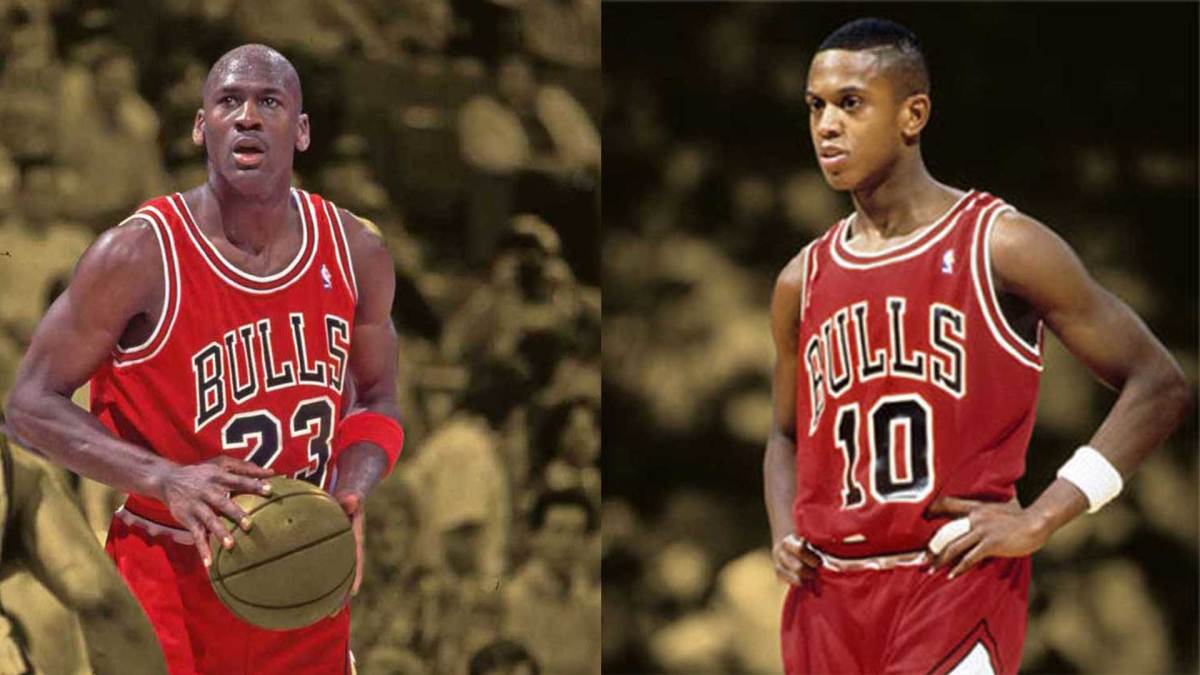BJ Armstrong Reveals How Michael Jordan Transformed His Game After Return

BJ Armstrong was one of the Chicago Bulls who convinced Michael Jordan to return to basketball after his brief retirement to play some minor league baseball. While Armstrong was thrilled to see his superstar teammate back on the court, he also observed MJ's challenges in regaining his rhythm and prowess.
At that time, the problem was not just Jordan's game. The game had evolved, and there had been an influx of talent within the NBA. As Armstrong described it, MJ never verbalized his thoughts on the matter, but it was clear that he was aware he wasn't quite the same player he once was.
Known for his unparalleled work ethic and dedication to the game, the 6'6" guard quickly recognized the issue before it even got worse. BJ noted that rather than shying away from the challenge, MJ embraced it and made the necessary effort to refine and enhance his skills.
"The truth is, he had to work much harder to be as successful as he had been previously," Armstrong said of Jordan in a special piece he wrote for Sky Sports in 2022. "He also had to change his game because he could no longer just physically dominate opponents as he could earlier in his career; he had to add a few things."
"MJ always had great footwork, but he had to probably use it a little more than he had ever needed to use it before after his comeback," the one-time All-Star point guard further stressed. "He had to figure out ways now to separate himself from the defense. At one point, he could just blow by everybody - now he had to have a fadeaway and utilize more post moves, and pick and choose his opportunities to win the game."
MJ's moment of clarity
Through relentless practice and determination, Jordan demonstrated his commitment to not only reclaiming his dominance but also becoming an even better player. Armstrong said MJ did well adapting to the new NBA landscape. However, Jordan figured that it wasn't enough.
After a few games, MJ was still not satisfied with his performance. He knew well that he had to do more to get back up to the top. BJ revealed that Jordan had a moment of clarity after his iconic "double-nickel" game in New York.
At that point, Mike fully understood that he had to be an all-around player instead of dominant on the offensive end. He revamped his overall approach to the game, strongly emphasizing defense.
"In the run of three titles which we won together, I'd seen him dominate games on both ends," BJ stated. "I think the double-nickel night was the first time he realized he would have to dominate the game in a different way to achieve that same level of success."
"That was a realization for me too, and the whole experience felt very different because he wasn't an offensive player instinctively," he assessed. "MJ was a defensive player first, second, and third. The offense was just the icing on the cake."
Related: "We got into a big fight in the club the night before" - Stephen Jackson recalls when Gregg Popovich first made him a starter
Jordan felt a renewed hunger
Armstrong had long admired Mike's unwavering passion for the game. Throughout their time together as teammates, BJ never once questioned MJ's relentless pursuit of excellence and winning mentality.
However, upon Jordan's return in 1995, Armstrong also noticed some notable changes in MJ's mindset as a player. The way he saw it, Mr. Air was not just motivated by the desire to redeem himself after his brief hiatus. Instead, Mike was also fueled by a profound longing to experience the thrill and fulfillment of triumph once again.
Ultimately, Armstrong reckoned that the Bulls gravitated to MJ's renewed and heightened sense of determination. Before long, Jordan and the Bulls were back to being the best in the league.
"When he returned to the NBA, he was absorbing the experience, drinking it in, and there was a greater appreciation for all of it," Armstrong added of Mike. "I think it was because he played in the minor leagues of baseball; he saw how hungry those kids were to get to the major leagues. He probably also had the realization, 'I can't do this forever,' so the sense of urgency that he was working with when he came back was far greater."
"I think it was down to the fact that he had such an innate understanding of where he was at both physically and mentally, what was possible for him, and then decided he was going to push his limit in those three years," he concluded.
After the Bulls were eliminated in the '95 playoffs, Jordan spent the summer working on the nuances and other aspects of his game. The following season, MJ and the Bulls finished the year with a historic 72-10 record and pulled off another three-peat.
Related: "He's like, 'Pip, Armstrong, the young fella, he mine all night" - Gary Payton on his rookie mistake of trash-talking Michael Jordan in a preseason game
Post a Comment for "BJ Armstrong Reveals How Michael Jordan Transformed His Game After Return"
Post a Comment